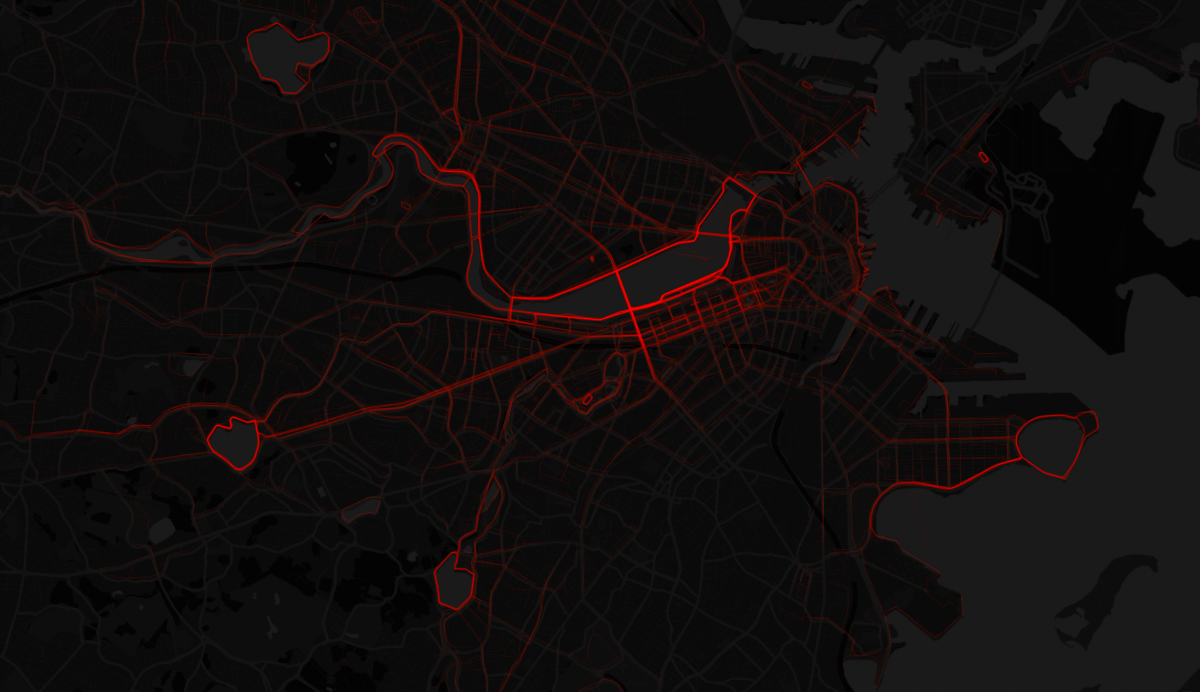Upcoming Events
2022 Fall Lecture Series – What does urban science have to say about urban design
Mondays, 12:30-1:30pm | Sep 12 – Dec 12

Previous Events
2020 Fall Urban Science Lecture Series
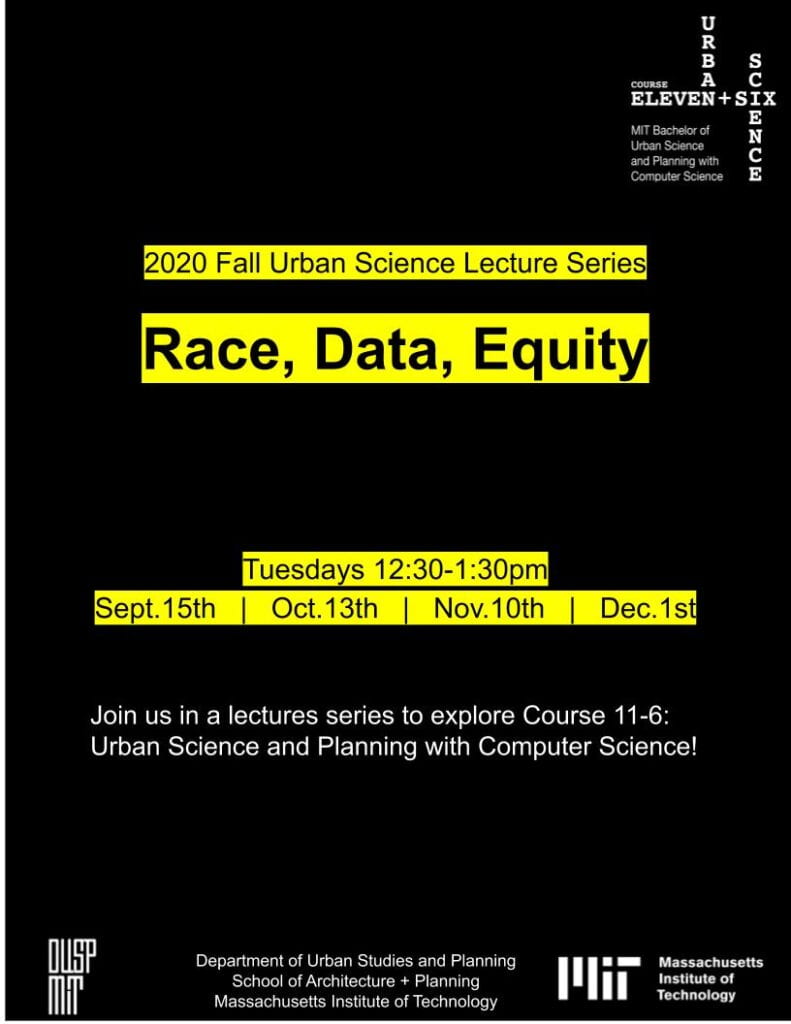
Tuesday, December 8th. 12:30-2:00pm
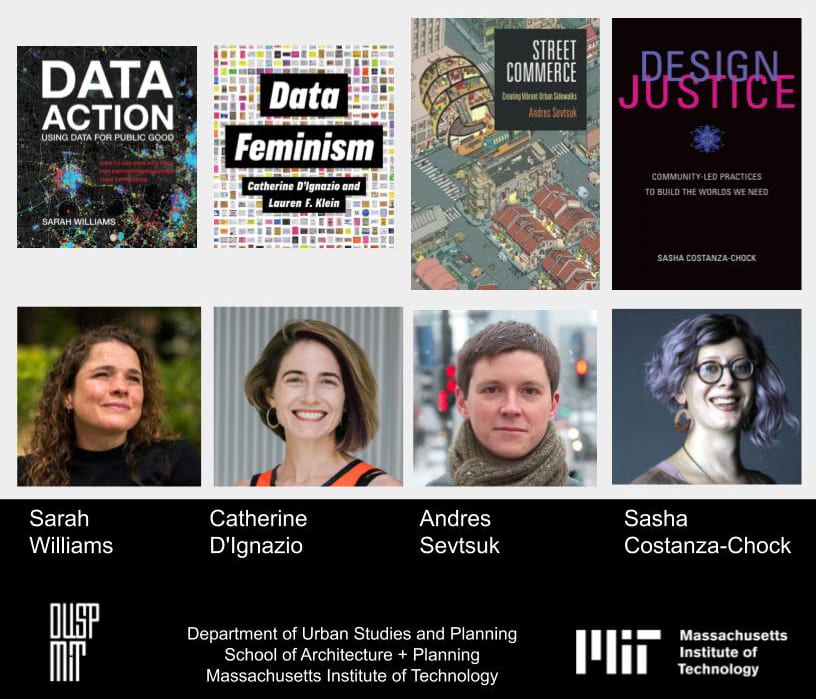
New Books from Urban Science!
Join us in a new books launching event to explore Urban Science and Planning with Computer Science!
Check out this amazing illustration created by Tamra Carhart (http://carhartcreative.com, instagram: @carhartcreativefor the event highlights!
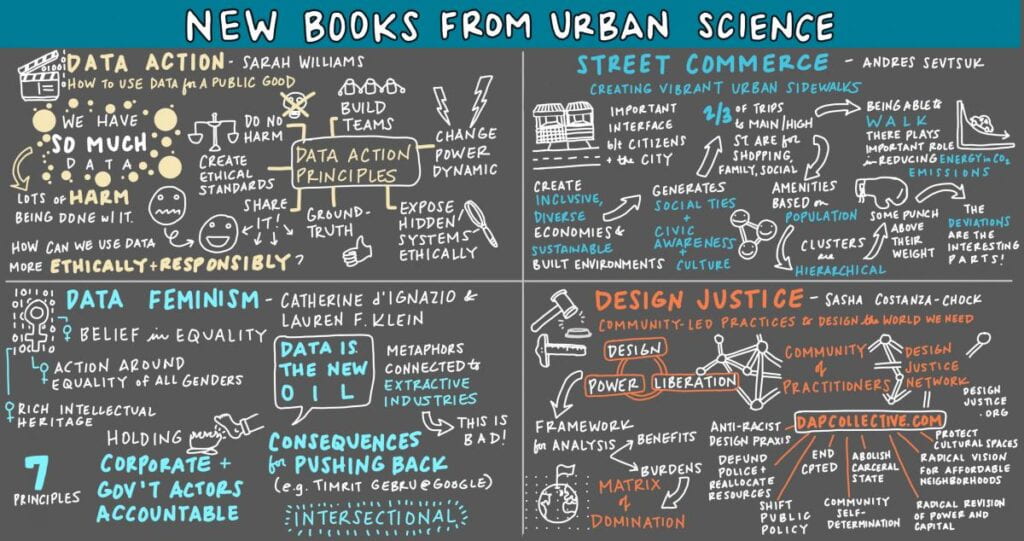
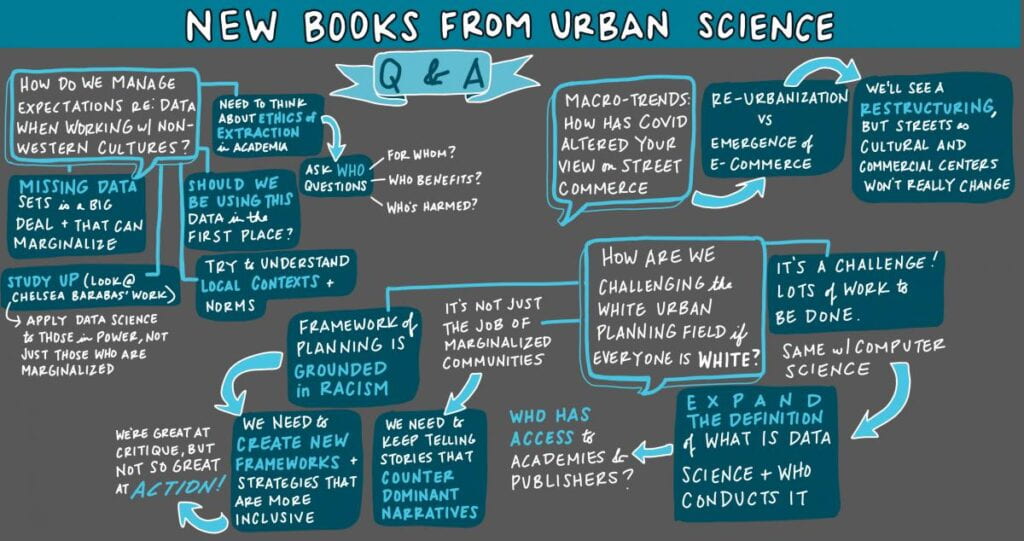
Tuesday, December 1st. 12:30-1:30pm
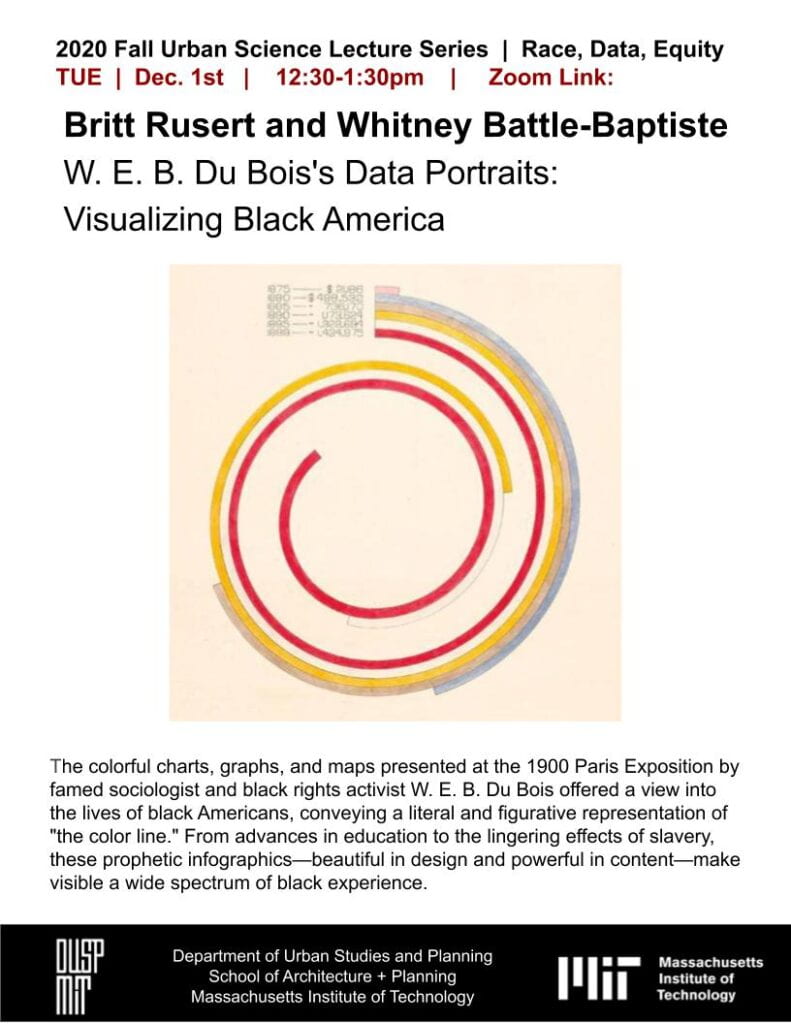
W. E. B. Du Bois’s Data Portraits: Visualizing Black America
Britt Rusert and Whitney Battle-Baptiste
Race, Data, Equity Lecture Series
The colorful charts, graphs, and maps presented at the 1900 Paris Exposition by famed sociologist and black rights activist W. E. B. Du Bois offered a view into the lives of black Americans, conveying a literal and figurative representation of “the color line.” From advances in education to the lingering effects of slavery, these prophetic infographics—beautiful in design and powerful in content—make visible a wide spectrum of black experience.
Tuesday, November 10th. 12:30-1:30pm
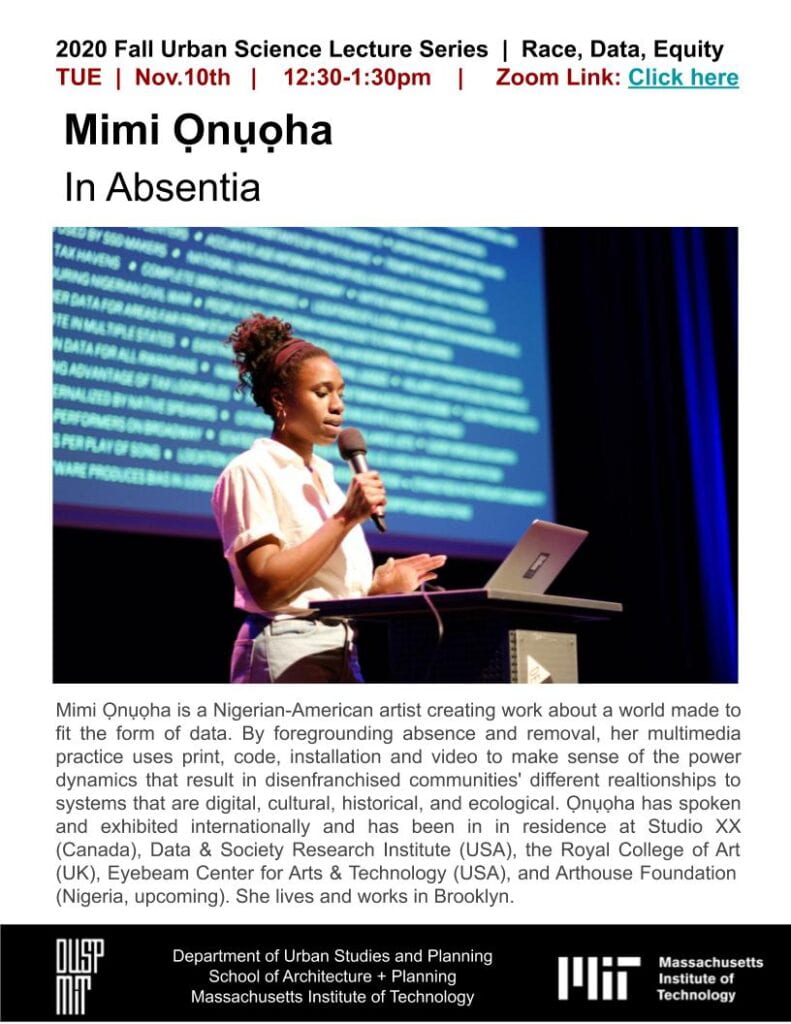
In Absentia
Mimi Ọnụọha | Visiting Arts Professor at NYU Tisch
Race, Data, Equity Lecture Series
Mimi Ọnụọha is a Nigerian-American artist creating work about a world made to fit the form of data. By foregrounding absence and removal, her multimedia practice uses print, code, installation and video to make sense of the power dynamics that result in disenfranchised communities’ different realtionships to systems that are digital, cultural, historical, and ecological. Ọnụọha has spoken and exhibited internationally and has been in in residence at Studio XX (Canada), Data & Society Research Institute (USA), the Royal College of Art (UK), Eyebeam Center for Arts & Technology (USA), and Arthouse Foundation (Nigeria, upcoming). She lives and works in Brooklyn.
Monday, November 9th, 12:30-1:30pm

BU/MIT Technology Law Clinic info session
Co-sponsored by Urban Science, DesignX, and the Science Impact Collaborative in DUSP.
The BU/MIT Technology Law Clinic is a free and confidential legal resource for MIT and BU students. BU Law students, together with experienced faculty, work with students who run into legal issues with their innovative and academic work, including in data privacy, cybersecurity, intellectual property, and media law. This BU and MIT partnership came in response to a demand from students at MIT, who asked for greater legal support for their startups and independent academic activity. Come to our event to learn more!
Monday, November 2rd. 12:00-1:00pm
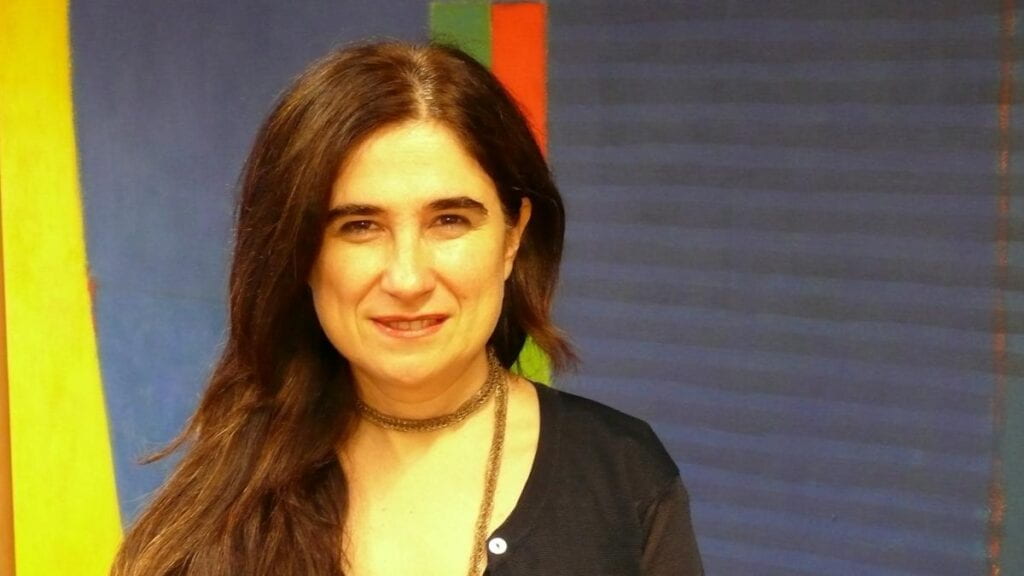
Gender in Planning: Moving From Research to Actual Implementation
Inés Sánchez de Madariaga | Director, UNESCO Chair on Gender Equality in Science, Technology and Innovation & Professor of Urban Planning, Universidad Politécnica de Madrid
Hosted by the Data + Feminism Lab, MIT Urban Science 11-6, and the DUSP City Design and Development group.
Tuesday, October 13th. 12:30-1:30pm
Data Refutations: Indigenous protocols and cartographic dialogue
Margaret Pearce | Cartographer and Writer
Race, Data, Equity Lecture Series
Margaret Wickens Pearce is a cartographer and enrolled Citizen Band Potawatomi. She grew up on Seneca territory at Ga’sgöhsagöh, at the Waterfall (Rochester, NY) and today lives on Penobscot territory at Catawamkeag, the Great Landing Place (Rockland, Maine). Her work has been exhibited nationally and internationally, and awarded support by Yaddo, ART Omi, A Studio in the Woods, New Orleans Center for the Gulf South, the Landes Fund, the Center for Native American and Indigenous Research at Northwestern University, the School for Advanced Research, and the American Council of Learned Societies (ACLS), among others, and received two national cartographic design awards. She has been a faculty member at Humboldt State University, Ohio University, and University of Kansas, and holds a Ph.D. in geography from Clark University.
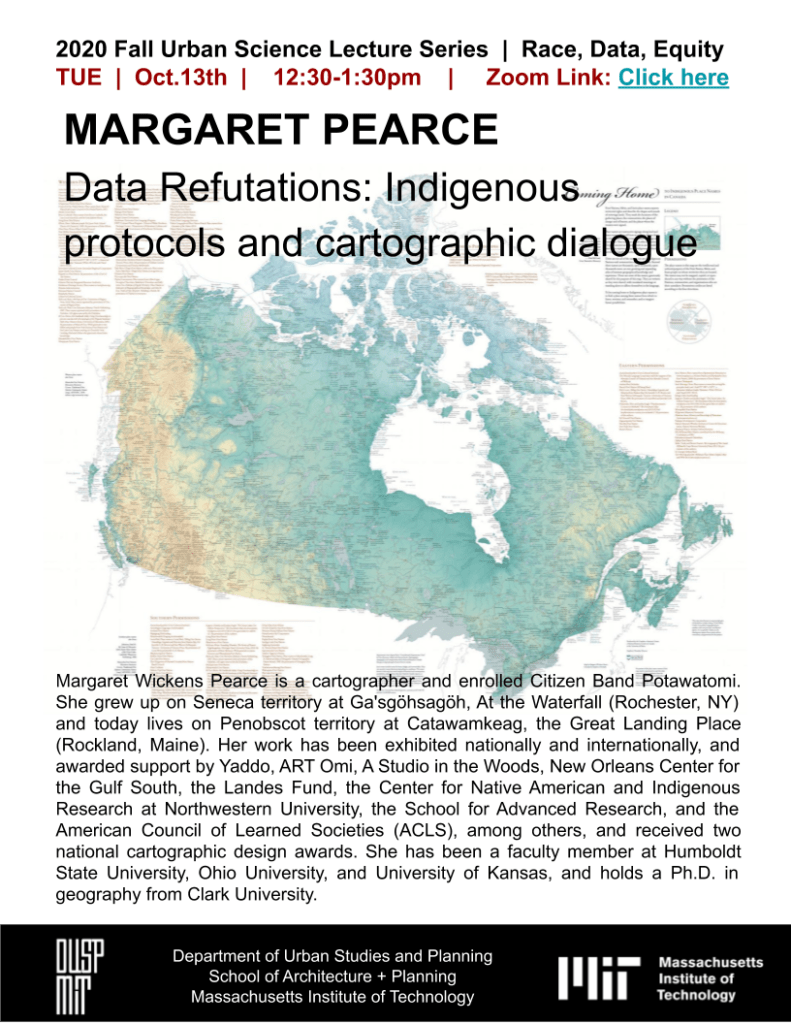
September 15th
Ending police terror against Black people: Building a world without police?
Brandon D. Anderson | Founder of Raheem
Race, Data, Equity Lecture Series
Brandon D. Anderson is a Black queer abolitionist, tech-entrepreneur, and third-generation military veteran born and raised in Oklahoma during the height of the 1980’s crack epidemic and the global HIV pandemic. He’s the oldest of five and the son of Shirley Anderson, a Sunday-school teacher and sales clerk, and John Anderson, a retired janitor and manufacturing plant manager. After losing his life partner and fiancé to police violence during a routine traffic stop, Anderson founded Raheem — the independent service for reporting police violence in the United States. Raheem has helped thousands of people report police in over 200 US cities and tied more than 275 officers to cases of police misconduct.
